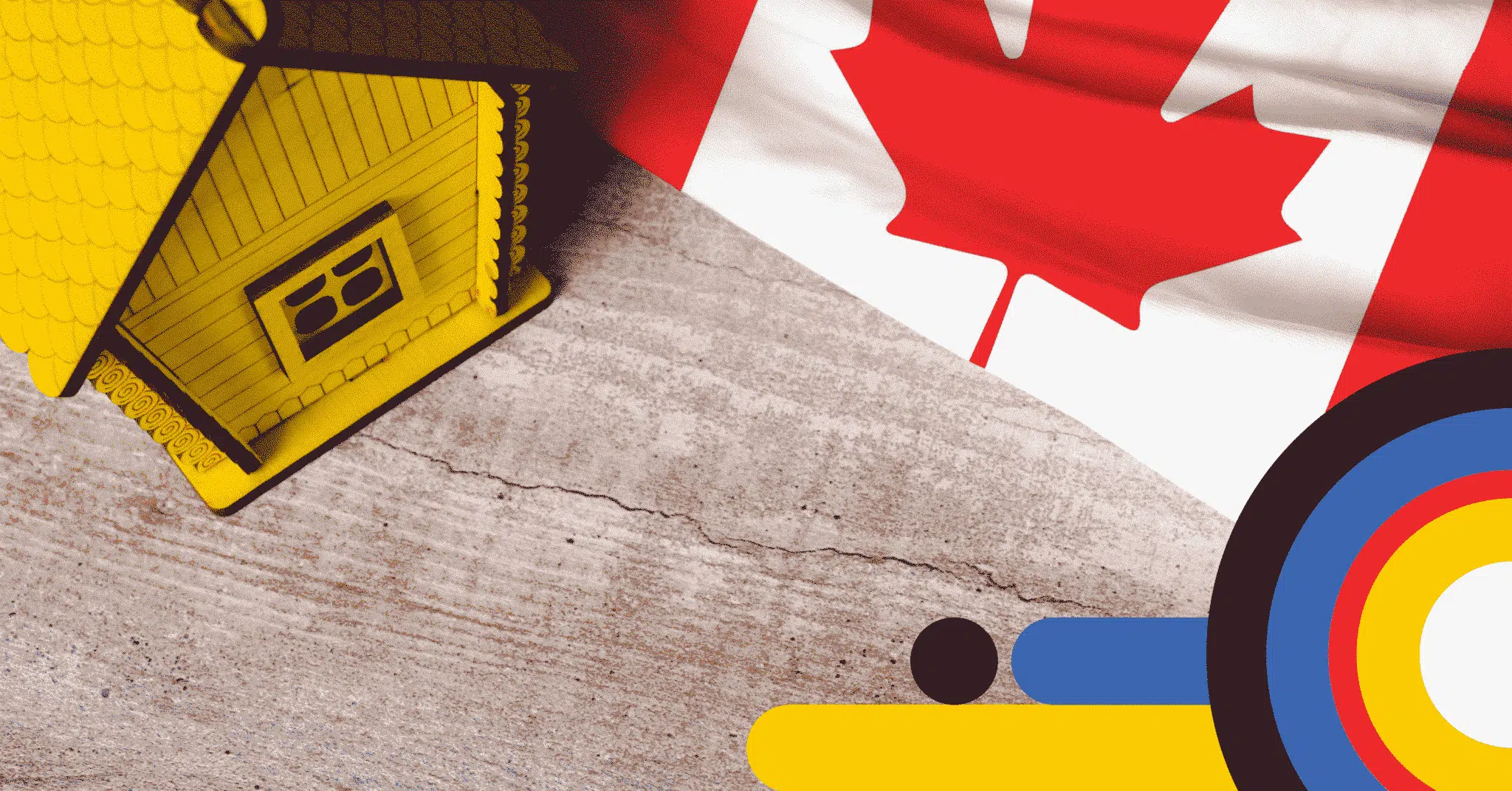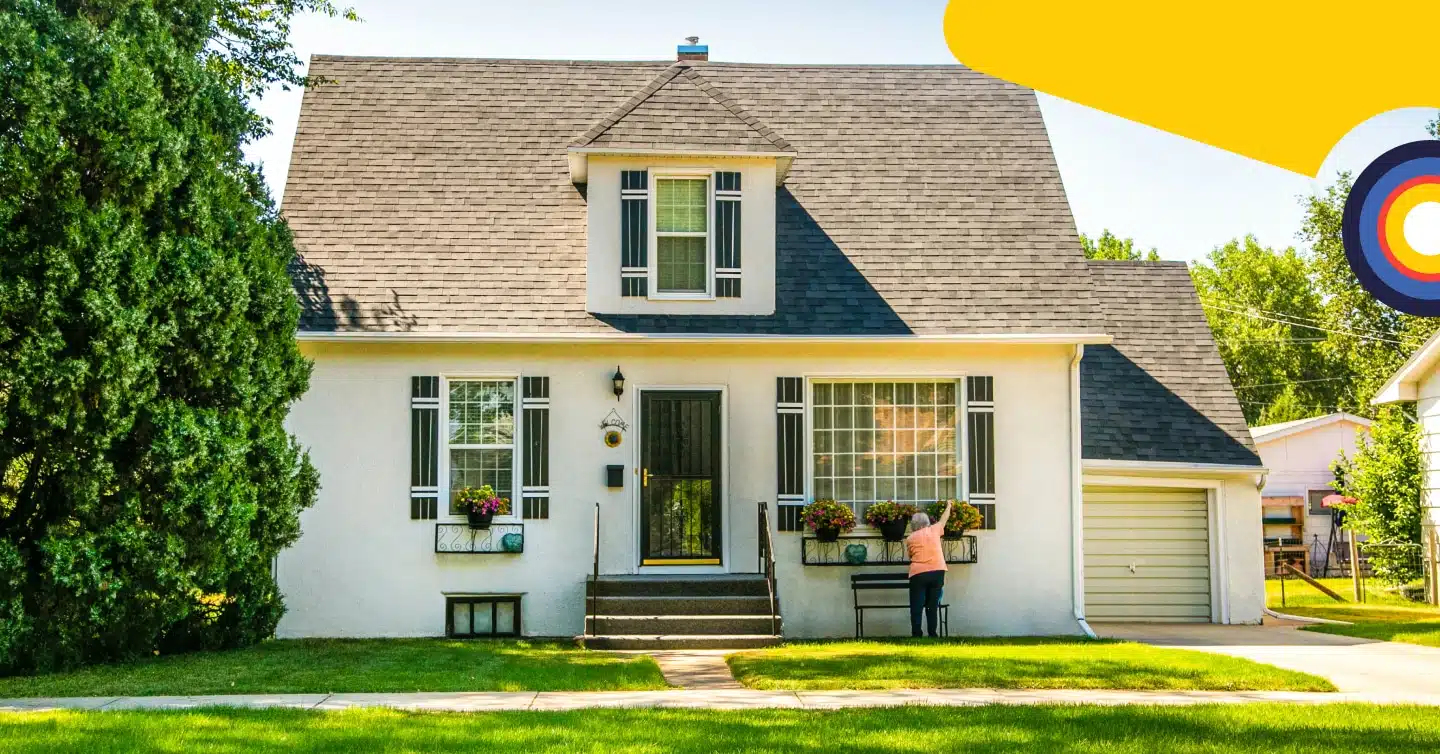Conventional Mortgages in Canada: Understanding Your Options

Table of contents
A conventional mortgage is a home loan that doesn’t require mortgage default insurance and requires a downpayment of at least 20% of the property’s purchase price. This article will explore conventional mortgages, how they work, and what differentiates them from other mortgage options, such as high-ratio or collateral mortgages.
Key Takeaways
- Conventional mortgages require a minimum 20% downpayment.
- Borrowers with conventional mortgages do not require mortgage default insurance.
- Conventional mortgages can help you save on interest-carrying costs with no insurance premium and a lower starting mortgage balance.
What Is a Conventional Mortgage?
A conventional or uninsured mortgage in Canada is a loan where the borrower makes a downpayment of at least 20% of the property’s purchase price. This type of mortgage does not require default insurance, which differs from high-ratio mortgages requiring insurance from insurers such as the Canada Mortgage and Housing Corporation (CMHC). With conventional mortgages, the 20% or more downpayment is sufficient to offset the lender’s risk.
How Does a Conventional Mortgage Work?
When you opt for a conventional mortgage, the lender will provide a mortgage that covers up to 80% of the property’s value while you provide the difference (20% or more) as the downpayment. This setup allows borrowers to avoid default insurance premiums associated with mortgages that have smaller downpayments.
For example, if you purchase a home for $500,000, a conventional mortgage would require you to make at least a $100,000 downpayment (20%), and the lender would finance the remaining $400,000 (80%).
Benefits of a Conventional Mortgage
Choosing a conventional mortgage offers several advantages for homebuyers:
No Mortgage Default Insurance
With a conventional mortgage, you won’t have to pay mortgage default insurance, which is required for mortgages with a down payment of less than 20%. This insurance can add 0.6% to 4% of your total loan amount based on your loan-to-value (LTV) ratio, so avoiding it can lead to significant savings.
Immediate Home Equity
A larger down payment means you own more of your home from the start. This gives you instant equity, which can benefit you if you plan to take out a home equity line of credit (HELOC) later when you have more equity built in the home.
Lower Mortgage Payments and Less Interest
A larger downpayment reduces your mortgage principal balance, resulting in a smaller mortgage payment. Since the total interest you pay is based on your principal balance and the amortization, you will pay less interest over the life of the mortgage when you make a larger downpayment.
Home buying without the stress.
Start your mortgage application today
Conventional Mortgage vs. High-Ratio Mortgage
What Is a High-Ratio Mortgage?
A high-ratio or insured mortgage is when the downpayment is less than 20%. These mortgages require mortgage default insurance to protect the lender in case of default. The insurance premiums are either paid upfront as part of your closing costs or added to your mortgage, increasing the total amount you owe.
For example, if you purchase a $500,000 home with a $25,000 downpayment (5%), you would require a high-ratio mortgage and be required to pay mortgage default insurance.
Comparing Conventional and High-Ratio Mortgages
| Feature | Conventional Mortgage | High-Ratio Mortgage |
|---|---|---|
| Downpayment | Minimum 20% | 5% to less than 20% |
| Mortgage Default Insurance | Not required | Required |
| Loan Amount | Up to 80% of the home’s value | More than 80% of the home’s value |
| Interest Rates | Typically higher (unless putting 35% or more down) | Typically lower |
| Mortgage Payments | Lower overall payments due to lower mortgage principal | Higher due to added insurance costs and higher mortgage principal |
Interest Rates on Conventional Mortgages
Conventional mortgage interest rates can vary based on several factors, including:
- Credit score: A higher credit score can help you secure better rates.
- Term length: The length of the term will impact your interest rate. Shorter terms may help you save if interest rates are anticipated to fall in the short term. Longer terms can help protect against higher rates if rates are predicted to rise in the short term.
- Fixed vs. variable rates: Fixed mortgages lock in your interest rate, while variable mortgages fluctuate with the market.
- Current prime rate: The lender’s prime rate influences variable mortgages.
- Amortization: Rates are higher for mortgages exceeding 25-year amortizations.
Conventional Mortgage vs. Collateral Mortgage
A collateral mortgage is another option for homebuyers, but it differs significantly from a conventional mortgage. With a collateral mortgage, your lender registers a legal charge against the property for an amount that could exceed your mortgage amount. A collateral charge mortgage registration allows you to secure your mortgage and other debts under one charge, if not now, then once you pay down your mortgage.
A collateral charge mortgage is a re-advanceable mortgage. With this type of mortgage, you can increase your loan amount anytime within your limits without refinancing your mortgage.
Key Differences
- Loan Flexibility: With a collateral mortgage, the lender can increase your loan as your home’s value rises without refinancing if the registered charge was originally greater than the original mortgage amount needed.
- Transferability: Unlike conventional mortgages, collateral mortgages cannot be transferred to another lender without additional legal fees.
- Equity Access: Collateral mortgages allow you to hold a HELOC, providing easy access to home equity as the mortgage is paid down without requiring a second charge to be registered behind your first mortgage.
Eligibility for a Conventional Mortgage
Qualifying for a conventional mortgage in Canada is similar to qualifying for other mortgage types. You will need to meet lender-specific criteria, including:
- Debt-to-Income Ratio: Lenders will assess your total debt compared to your income to ensure you can afford the mortgage.
- Minimum 20% Downpayment: You must have at least 20% of the property’s purchase price as a down payment.
- Good Credit Score: Lenders typically require a credit score of 680 or higher.
- Stable Income: You must prove steady income, demonstrating your ability to make mortgage payments.
Frequently Asked Questions
What minimum downpayment is required for a conventional mortgage in Canada?
The minimum downpayment for a conventional mortgage in Canada is 20% of the home’s purchase price.
How does a conventional mortgage differ from a high-ratio mortgage?
A conventional mortgage requires at least a 20% downpayment and does not require mortgage insurance. A high-ratio mortgage requires a smaller downpayment, 5% to less than 20%, and requires default insurance to protect the lender.
What are the interest rate options available for conventional mortgages?
Conventional mortgages can have fixed or variable interest rates. Fixed rates remain constant throughout the mortgage term, while variable rates fluctuate based on the lender’s prime rate.
Can I switch lenders with a conventional mortgage?
Unlike collateral mortgages, conventional mortgages can be transferred to another lender without significant discharge and transfer fees.
What are the benefits of choosing a conventional mortgage over other types?
Conventional mortgages offer more immediate home equity and exemption from mortgage default insurance, making them a more cost-effective option for buyers who have a larger downpayment saved.
Final Thoughts
A conventional mortgage is an excellent choice for Canadian homebuyers with the financial means to make a 20% downpayment or more. Since conventional mortgages do not require default insurance and provide the ability to build equity more quickly from day one, they offer significant advantages over high-ratio, alternative or interest-only mortgages. However, it’s essential to consider your financial situation and goals before deciding if a conventional mortgage is the best option for you.
Consult with nesto’s mortgage experts to explore all your options and secure the most favourable rate and terms for your mortgage.
Why Choose nesto
At nesto, our commission-free mortgage experts, certified in multiple provinces, provide exceptional advice and service that exceeds industry standards. Our mortgage experts are non-commissioned, salaried employees who provide impartial guidance on mortgage options tailored to your needs and are evaluated based on client satisfaction and advice quality. nesto aims to transform the mortgage industry by providing honest advice and competitive rates using a 100% fully digital, transparent, seamless process.
nesto is on a mission to offer a positive, empowering and transparent property financing experience – simplified from start to finish.
Contact our licensed and knowledgeable mortgage experts to find your best mortgage rate in Canada.
Ready to get started?
In just a few clicks, you can see our current rates. Then apply for your mortgage online in minutes!
in this series Types of Mortgages
- What Is A Home Equity Loan In Canada? next read
- What is a Cashback Mortgage? next read
- Blended Mortgages: How They Work & Save You from Prepayment Penalties next read
- What is a Conventional Mortgage currently reading
- What Is a Collateral Charge Mortgage? next read
- What is a Readvanceable Mortgage? next read















